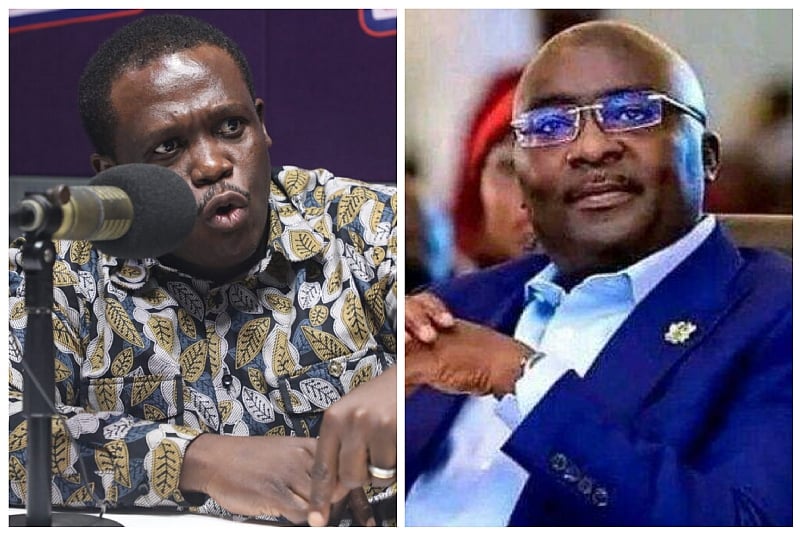Ningo Prampram MP, Samuel Nartey George, has voiced strong criticisms against Vice President Dr. Mahamudu Bawumia for recent comments regarding the status of four Members of Parliament whose seats were declared vacant. Bawumia entered the debate surrounding the Speaker of Parliament, Alban Bagbin’s declaration that these particular MPs had vacated their seats following a shift in political allegiance. In his remarks, the Vice President implied that if the opposition National Democratic Congress (NDC) sought to regain a majority in Parliament, they should accomplish this through elections rather than through parliamentary maneuvering. His assertion has sparked a contentious exchange, with Sam George labeling Bawumia’s statements as “extremely shallow” and accusing him of being uninformed about parliamentary procedures and the intricacies involved in legislative majority status.
In a pointed social media post, Sam George responded critically to Bawumia’s comments. He argued that the Vice President’s assertion was not only misguided but also exhibited a lack of understanding of the current political context. The crux of his argument hinged on the number of seats won by both the ruling New Patriotic Party (NPP) and the NDC in the previous election, highlighting that both parties secured an equal number of seats—137 each. This parity raises questions about the NPP’s claimed majority, with Sam George emphasizing that such a majority is not inherently derived from electoral success but rather from parliamentary decisions.
Sam George chastised the NPP’s claim to a majority, reiterating that it is largely due to Speaker Bagbin’s decision to count independent MP Andrew Asiamah among the NPP Caucus. He noted that this ruling was pivotal in creating a perceived majority for the NPP. The MP pointed to this situation as a glaring example of hypocrisy, suggesting that those in the NPP who are now contesting the Speaker’s authority to determine parliamentary majority initially benefited from that very authority. His criticism emphasizes how the political narrative shifts based on circumstance, accusing the ruling party of convenient reinterpretation of parliamentary rules to suit their agenda.
The situation surrounding the declaration of the four MPs’ seats as vacant is rooted in their political realignment, which Sam George argues constitutes a violation of Article 97(1)(g) and (h) of the Constitution that governs parliamentary conduct in Ghana. This Article sets specific conditions under which a Member of Parliament may vacate their seat, essentially criminalizing the act of switching allegiance from one political party to another without due process. The Speaker’s ruling on this matter has not only stirred significant debate but has also re-ignited discussions on the nature of party loyalty and representation in Ghana’s political landscape.
The ongoing controversy underscores broader themes within Ghanaian politics, particularly regarding the tension between constitutional mandates and political strategy. With the ruling party facing allegations of exploiting parliamentary rules for political gain, Sam George’s criticisms reflect a growing frustration among opposition members. He draws attention to the implications of the NPP’s tactics, suggesting that they are undermining the integrity of Parliament by failing to accept the consequences of their decisions regarding member allegiance.
In summary, the clash between Sam George and Dr. Bawumia reflects a deeper political struggle within Ghana’s Parliament, where interpretations of majority status are tightly intertwined with the principles of democratic representation and party loyalty. The debate emphasizes the need for clear standards in parliamentary conduct, particularly concerning the shifting allegiances of MPs. This discourse not only illuminates the immediate situation of the four MPs but also resonates with the larger narrative of accountability and ethical governance in Ghana’s evolving political environment. As the discussions unfold, both sides are likely to continue leveraging their positions to galvanize their respective bases, highlighting the critical role of Parliament in shaping Ghana’s democratic governance.














